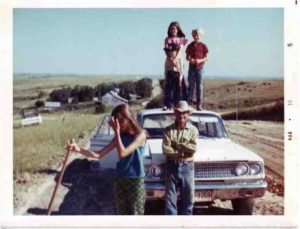
Today is International Holocaust Remembrance Day.
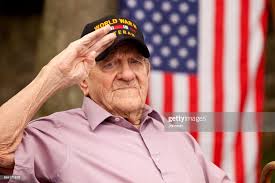
The other day at the store, I saw an elderly man wearing a World War II veteran cap. I looked him in the eye and thanked him for his service. “You’re welcome,” he said, a pleased smile lighting up his face. Bruce and I commented on the fact that there aren’t very many veterans left from World War II, especially ones who are able to take themselves to the store.
I’ve always felt like World War II was so long ago, in the dim, distant past, as my aunt used to say. And, don’t get me started on the Civil and Revolutionary Wars, let alone the 1600s! But time is skewing those impressions. Or maybe, it is righting them.
Recently, I realized that it was only eleven years between the time my mother died, in 1973, and when I started nursing school. Only eleven years? How can that be? So much of my growing up occurred during those years. On the other hand, what seems like it may have been eleven years ago, was 1990, which, of course, has been (gasp) thirty-three years. No way!
Then, this thought struck me. Twenty years before I was born, we were in the middle of World War II and the Holocaust.

Auschwitz-Birkenau, the largest of the death camps, was liberated on January 27, 1945, which is why this date was chosen for the International Holocaust Remembrance Day. Other than the celebration of this liberation, it’s not a day in which we remember a victory. It’s not a remembrance day where we are delighting in the birth of someone important. No, it is the remembrance of an evil, horrific, planned execution of a whole ethnic group of innocent people. And this was only twenty years before I was born.
Last week my husband and I watched a documentary titled Nicky’s Family. It is the story of one man who made a difference and the families he helped. A young business man, Nicholas Winton, was made aware of the desperate situation of Jews in Czechoslovakia, and he single-handedly succeeded in saving 669 children by finding them “temporary” homes in England and other places. It is the powerful account of the difference one man can make.
Here is a link to information about this documentary. http://www.nickysfamily.com/
“Those who cannot remember the past are condemned to repeat it.” George Santayana
I would encourage you to spend some time this week remembering the lives lost. Consider how you might make a difference in your own community with the challenges we face. Both the man in the grocery store and Mr. Winton answered the call facing them. How about us?
If you have stories of people who served in World War II, survivors of the Holocaust, or other good documentaries or books on this topic, feel free to share them below in the comments.
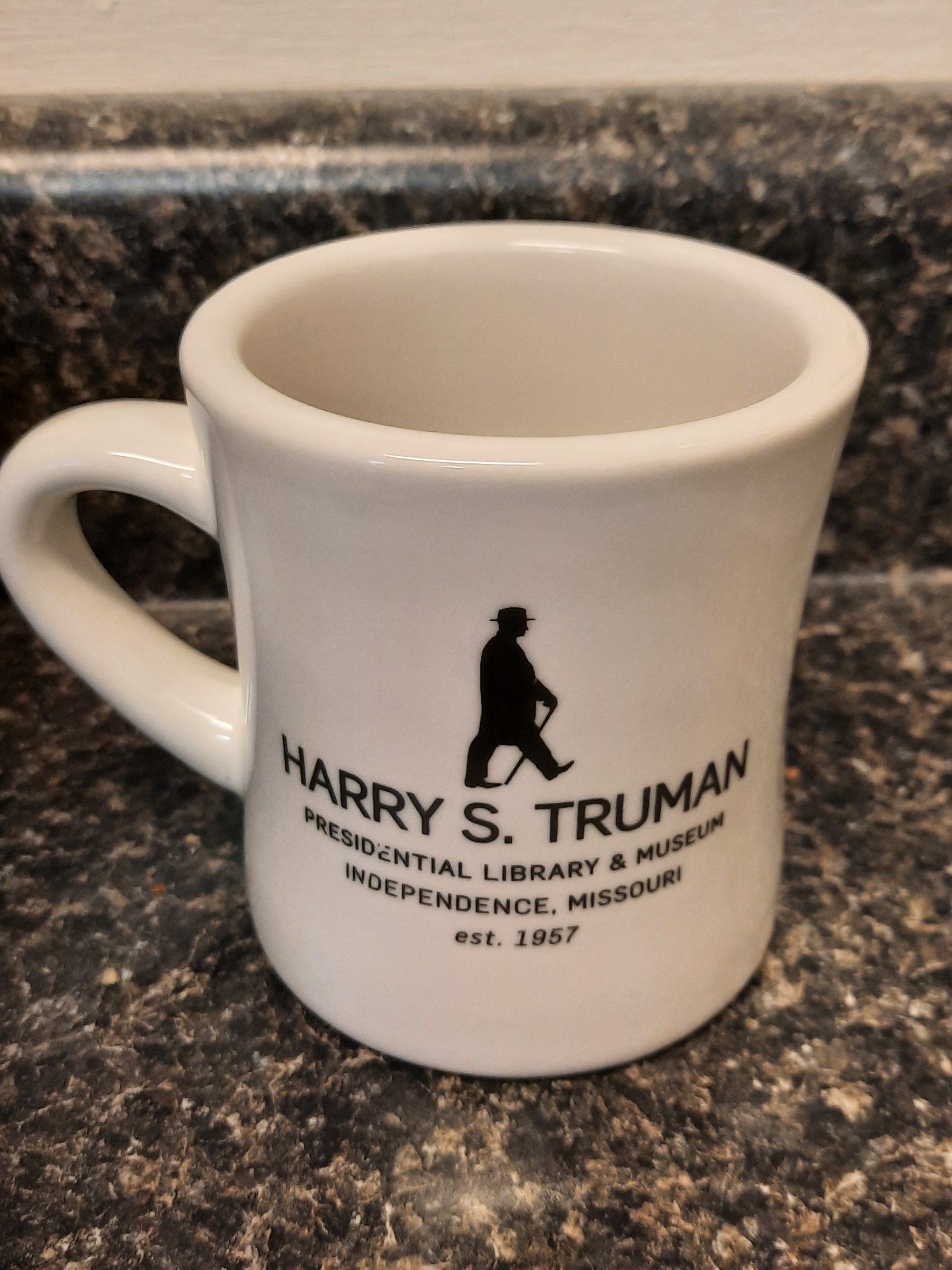
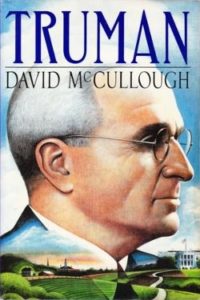 Several years ago, I read the biography, Truman, by David McCullough. I knew very little about President Truman before that, so the book was an eye-opening experience. After all, that time period is the back story to my life, the era of my parents’ childhoods. To be honest, there was a lot going on in the world during that time, and Truman ended up involved in most of it in one way or another.
Several years ago, I read the biography, Truman, by David McCullough. I knew very little about President Truman before that, so the book was an eye-opening experience. After all, that time period is the back story to my life, the era of my parents’ childhoods. To be honest, there was a lot going on in the world during that time, and Truman ended up involved in most of it in one way or another.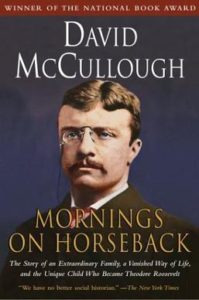 A couple of weeks ago I finished reading Mornings on Horseback, also by David McCullough. It’s not a biography, but rather the chronicling of a family, the Roosevelt family. It starts with President Theodore Roosevelt’s grandparents and parents, and then settles into a close-up-and-personal look at the family in which Teddy Roosevelt grew up. It follows them through to the point where Teddy is about to marry his second wife, then quickly ties up the loose ends, letting you know how each of his siblings’ lives went after that.
A couple of weeks ago I finished reading Mornings on Horseback, also by David McCullough. It’s not a biography, but rather the chronicling of a family, the Roosevelt family. It starts with President Theodore Roosevelt’s grandparents and parents, and then settles into a close-up-and-personal look at the family in which Teddy Roosevelt grew up. It follows them through to the point where Teddy is about to marry his second wife, then quickly ties up the loose ends, letting you know how each of his siblings’ lives went after that.


